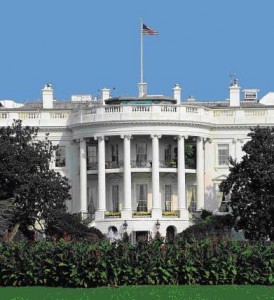 TEHRAN, Oct. 27 (MNA) – Thousands march on Capitol Hill in Washington to protest US government's mass online surveillance programmes.
TEHRAN, Oct. 27 (MNA) – Thousands march on Capitol Hill in Washington to protest US government's mass online surveillance programmes.
Thousands of protesters have marched on the Capitol Hill in Washington to protest against the US government's online surveillance programmes seen as encroaching on private life.
Saturday’s protest comes amid a widening scandal revealing sweeping US surveillance on the communications of ordinary citizens and global leaders that has sparked outrage worldwide.
German spy chiefs will travel to the US next week to demand answers following allegations that US intelligence has been tapping Chancellor Angela Merkel's mobile phone.
The US may have bugged Merkel's phone for more than 10 years, according to a report in Der Spiegel magazine.
The news report on Saturday also said that President Barack Obama told the German leader he would have stopped it happening had he known about it.
The reports of bugging prompted Germany to summon the US ambassador this week for the first time, an unprecedented post-war diplomatic rift.
Der Spiegel said Merkel's mobile telephone had been listed by the NSA's Special Collection Service (SCS) since 2002 - marked as "GE Chancellor Merkel" - and was still on the list weeks before Obama visited Berlin in June.
The furore has intensified after allegations that world leaders including the presidents of Brazil and Mexico have been among spying targets.
Legal framework
Estimates varied on the size of the march, with organisers saying more than 2,000 attended. US Capitol Police said they
do not typically provide estimates on the size of demonstrations.
The Protesters have been urging Congress to reform the legal framework supporting the National Security Agency's secretive online data gathering since the former NSA contractor Edward Snowden's disclosure of classified information about the programmes that are designed to gather intelligence about potential foreign threats.
People carried signs reading: "Stop Mass Spying," "Thank you, Edward Snowden" and "Unplug Big Brother" as they gathered at the foot of the Capitol to demonstrate against the online surveillance.
The event was organised by a coalition known as "Stop Watching Us" that consists of about 100 public advocacy groups and companies, including the American Civil Liberties Union, privacy group Electronic Frontier Foundation, Occupy Wall Street NYC and the Libertarian Party.
Exactly 12 years to the day after Congress passed the Patriot Act to expand anti-terror intelligence gathering in the wake of the September 11 attacks, the protesters called for an end to "mass spying".
The protesters handed to Congress an online petition signed by 575,000 people urging lawmakers to "reveal the full extent of the NSA's spying programmes".
"It's not just Americans being caught in this dragnet. We need to stand up for the rest of the world too," Free Press media and technology advocacy group president and chief executive Craig Aaron told the crowd.
"It's not about right and left; it's about right and wrong."
Transparency in surveillance
President Barack Obama administration and many lawmakers have defended the NSA programmes as crucial in protecting US national security and helping thwart past attack plots. They have also said the programmes are carefully overseen by Congress and the courts.
In the wake of the scandal, Obama unveiled a series of measures in August to ensure more transparency in surveillance programmes, including the one that has most shocked the American public by collecting metadata from telephone records.
Congress plans to hold new hearings on the surveillance programmes in the coming weeks and several bills are being drafted to amend the system.
The spying row has prompted European leaders to demand a new deal with Washington on intelligence gathering that would maintain an essential alliance while keeping the fight against terrorism on track.
Germany and Brazil are also working on a UN General Assembly resolution to highlight international anger at US data snooping in other countries, diplomats said on Friday.
By Mehr News Agency
The Iran Project is not responsible for the content of quoted articles.

 QR code
QR code